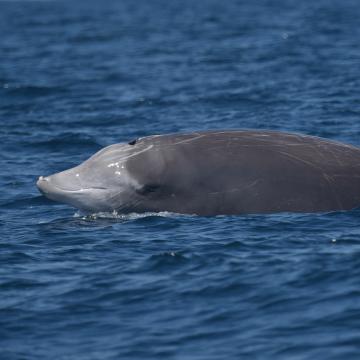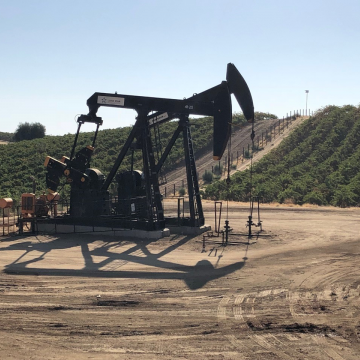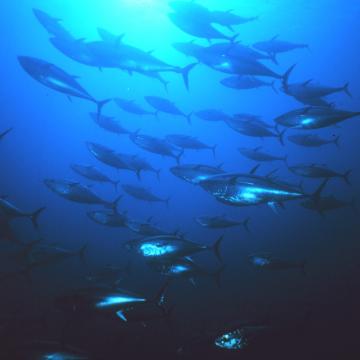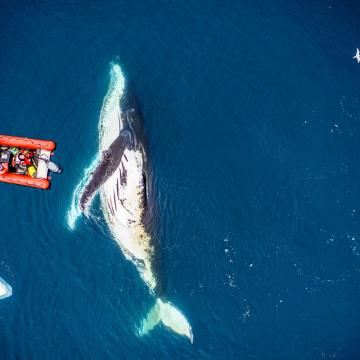-
NewsResearchers have used automatic identification systems (AIS) satellite data and other spatial analysis tools to identify more than 1,000 companies that fish in the high seas—waters that lie outside national jurisdiction where fishing has raised fears about environmental and labor violations.
-
NewsDuke University researchers have created a new online resource designed to help local governments, conservation groups, businesses and other stakeholders identify the best technologies to clean up plastic pollution in our oceans or prevent it from getting there in the first place.
-
NewsThe National Science Foundation has awarded Dana Hunt, associate professor of microbial ecology, a $299,693 grant to support research on how hurricanes and other disturbances shape microbial productivity and function in the oceans.
-
NewsIn 2017, a Cuvier’s beaked whale that had been tagged by a team of Duke University marine scientists dove deep into the waters off Cape Hatteras, N.C, and stayed below the surface for 3 hours and 42 minutes before coming up for air – making it the longest whale dive ever recorded.
-
NewsActing like high-rise timeshares in the sea, shipwrecks and other artificial reefs can support dense populations of sharks, mackerels, barracudas, jacks and other large migratory marine predators essential to ocean health, according to a new study at 30 sites along the North Carolina coast.
-
NewsA new study finds that dolphin-viewing tours are more profitable than tours where customers can swim with the animals – a much more disruptive option that can deprive spinner dolphins of rest and inhibit their ability to avoid predators while foraging in nearby waters at night.
-
NewsSalt marshes, seagrass meadows and other coastal ecosystems are in rapid decline around the world. Restoring them is expensive and often unsuccessful. But an international team of researchers has discovered a way to sharply increase the odds of success by using biodegradable mats.
-
NewsInteractive story map created for final master's project in Coastal Environmental Management program
-
NewsGovernments at every level have taken steps over the last decade to reduce the flow of plastic pollution into the world’s oceans, according to a recently published Duke University policy analysis. The analysis finds, however, that the vast majority of new policies have focused specifically on plastic shopping bags.
-
NewsReusing low-saline oilfield water mixed with surface water to irrigate farms in the Cawelo Water District of California does not pose major health risks, as some opponents of the practice have feared, a study led by Duke University and RTI International researchers finds.
-
NewsA new $2.44 million grant from the U.S. Department of Energy’s Advanced Research Projects Agency-Energy (ARPA-E) will support a Duke University-led initiative to help utilities and wholesale electricity markets improve their efficiency and reliability while reducing emissions and costs, at a time of needed transformations to tackle climate change.
-
NewsThe Migratory Connectivity in the Ocean (MiCO) system, an online open-access global database that maps the movements of sea turtles, whales, sea birds and other migratory species through the open ocean, has been awarded the 2020 Innovation Award by the Ocean Awards program.
-
NewsTo devise effective and equitable policies for governing small-scale fisheries, policymakers need to consider the activities and relationships that occur before and after fishers land their catches, not just the catches themselves, a new study shows.
-
NewsA Duke Ph.D. candidate in marine science and conservation uses drones to measure whales and other marine mammals.
-
NewsTanker traffic through the Strait of Hormuz can decline for up to two years after a piracy attack, a new Duke University study finds, but the adverse effects of the slowdown are far greater on some Persian Gulf countries than others.














